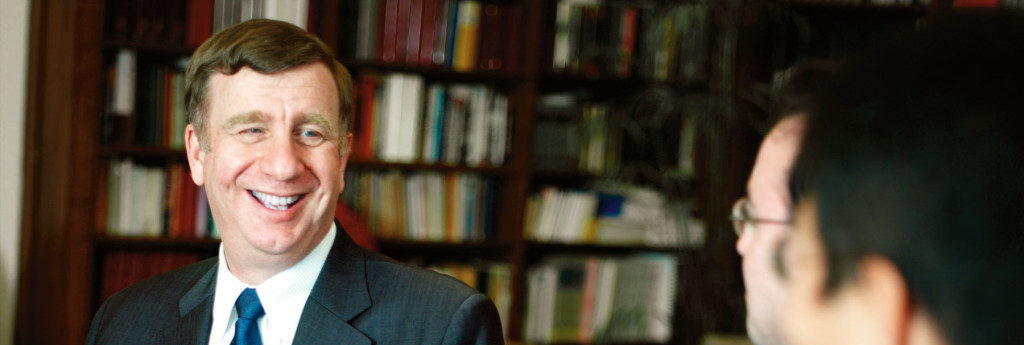Lei Ya-wen
Associate Professor of Sociology, Harvard University
As Professor William Alford steps down from his role as Vice Dean for the Graduate Program and International Legal Studies at Harvard Law School, my thoughts go immediately to my first interaction with him. It was around fifteen years ago and I had just received an admission letter to Harvard Law School’s LL.M. program from Professor Alford. The letter was already an exciting one, but it meant even more that it was coming from him. His groundbreaking and memorably titled work To Steal a Book is an Elegant Offense (1995) was already inspiring to me as a young legal scholar interested in studying the law in comparative and historical ways. I ended up going to Yale rather than Harvard for a variety of reasons, but I always regretted missing that opportunity to connect with him.
Of course, what I didn’t realize at the time was that I would eventually have the even greater honor of getting to know Professor Alford as a colleague and as Bill, a friend. Before finally coming to Harvard first as a postgraduate fellow and then as a faculty member, I was well aware of his brilliant scholarly contributions but I knew nothing about him as a teacher and mentor. This quickly changed when he invited me to give a guest lecture in one of his classes. To help me prepare, he shared with me his meticulous teaching plans, guidance to students, and class materials. I was completely shocked. The documents were like nothing I’d ever seen before in terms of their level of pedagogical commitment and care. Far from approaching teaching as an afterthought, as one might expect from a senior scholar, Professor Alford demonstrated an enthusiasm for teaching and mentoring that was and is truly infectious.
From that moment and in the years since, I have learned so much from just observing how he interacts with students, asks questions, and guides discussions. The undergraduate and graduate students that I have advised have also benefitted from Prof. Alford’s generosity, both directly and indirectly. He genuinely cares about students’ academic performance and career development. Over the years, I have sent many students to him for advice and he has kindly helped all of them. And as I have learned to be a better teacher and mentor from him, my students have benefited indirectly as well.
Professor Alford and I are both affiliated with the Fairbank Center, so we have also been able to connect as fellow China scholars, navigating the same often complicated and highly politicized territory. Time after time, I have watched him navigate that space with integrity, wisdom, and grace, setting a fine example for all in the field.
I could say more about Bill’s numerous contributions to various communities at Harvard and beyond, but perhaps the most meaningful tribute I can offer is to say that it has been a great honor and pleasure to have him as a model of not only an outstanding academic, but also an outstanding human being—whose career reminds us of the importance of being both.










